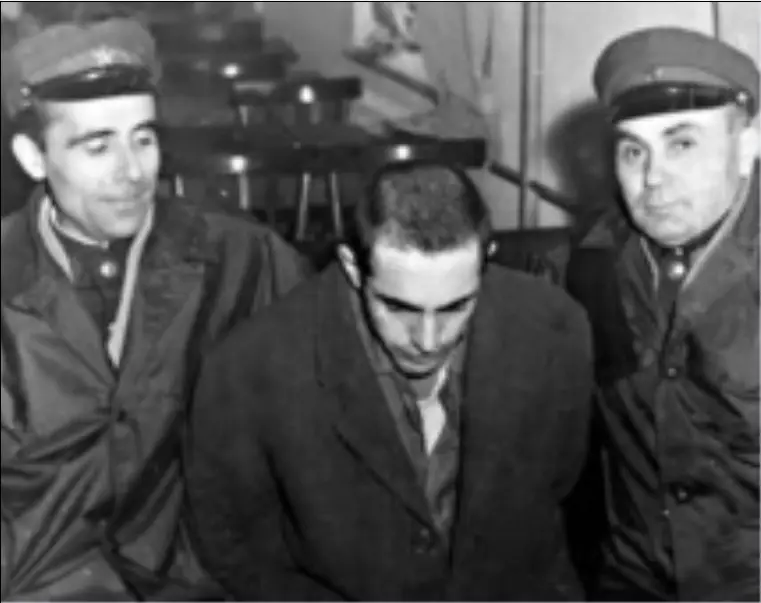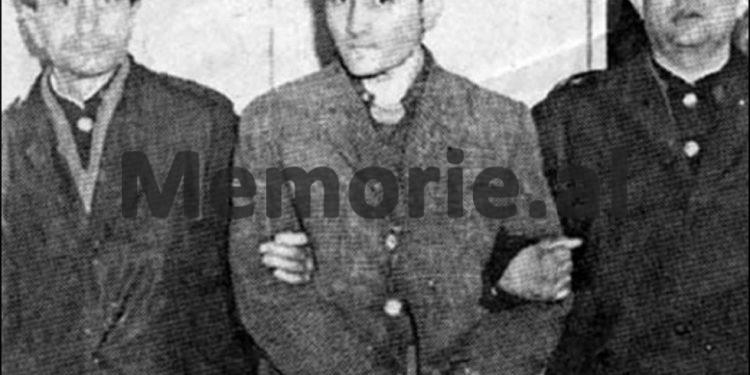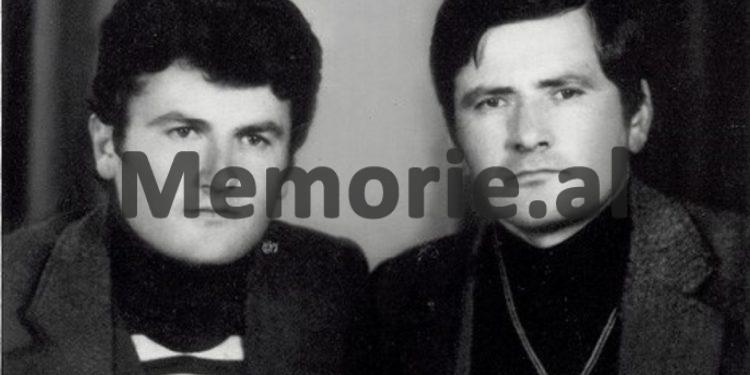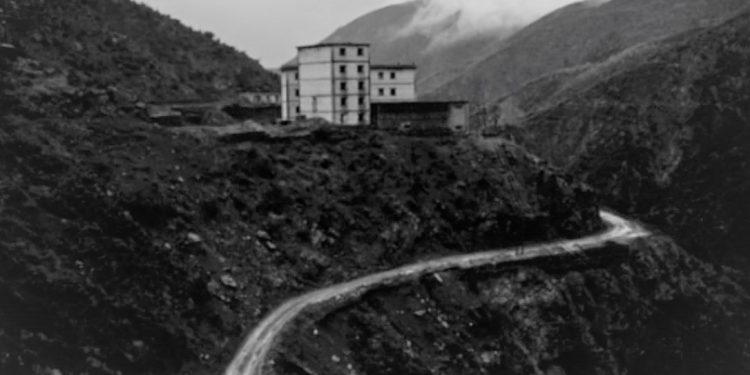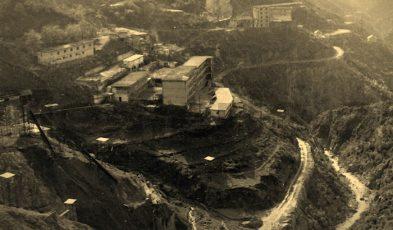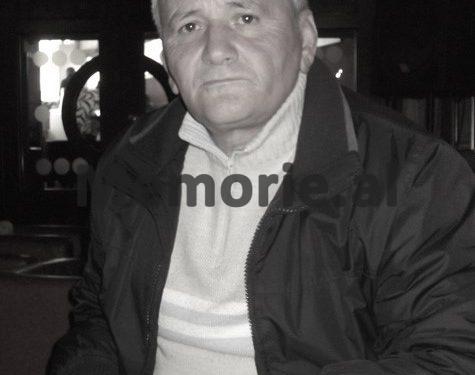By Elisabeta Ilnica
Part four
Memorie.al / He was 21 years old when he was sentenced to 21 years in prison. Agim Akcani is among the three former political convicts, survivors of the event of 1975, when two shootings were signed and six other people were given a total of 115 years in prison. They were called members of the “Baldushku saboteur group”, which, as the investigators of the case concluded, these eight villagers of the area participated in; “criminal organization against the people’s power, developed agitation and propaganda, with the aim of undermining the people’s power, as well as carried out the act of diversion, causing a damage to the socialist economy in the amount of ALL 359,983.80”. All these accusations were raised after the deaths of 98 Dutch cows (most of them slaughtered for meat), which were allegedly poisoned with mercury and other toxic substances.
Continues from last issue
The request of the convicted for pardon and the execution of the decision
On February 19, 1977, the Supreme Court upheld the decision of the Court of First Instance. In conclusion, the Presidium of the People’s Assembly, headed by Haxhi Lleshi, refused to pardon the lives of the two convicts, who were executed by firing squad.
On February 25, the secretary of the Presidium of the People’s Assembly, Telo Mezini, informed the Directorate of Enforcement of Criminal Decisions in the Ministry of Internal Affairs, that this body had refused to spare the lives of those sentenced to death; Preng Pal Qafa, Haki Murat Veizaj, Rifat Daja and Nuri Allmuça requesting the implementation of the decisions.
A day later, the Minister of Internal Affairs orders the Directorate of Internal Affairs and the Prosecutor’s Office of Tirana to execute the convicts of the Baldushka trial on February 26, 1977, at 24:00 at the “Designated Place”.
Minutes of execution
People’s Socialist Republic of Albania
Ministry of Internal Affairs
Directorate of Internal Affairs
Investigation branch… No. 856/1
Tirana, on 2.3.1977
Ministry of Internal Affairs
Directorate of Investigation
Regarding No. 41.3, dated 26.2.1977.
Attached we send you the minutes with two copies, on the execution by death and shooting of the convicts Refat Daja and Nuri Allmuça
Director of Internal Affairs
Nysret Dautaj
Minutes
Held on 26.2.1977, at midnight, on the execution of the decision of the Tirana District Court, no. 39, which deals with the death sentence and shooting, of the convict Refat Sali Daja, born in 1949, born in the village of Mustafakoçaj district of Tirana and of the convict Nuri Iljaz Allmuça, born in 1933, born in the village of Mumajes in the district of Tirana, this decision was upheld by the High Court of R.P.S. Albania, by decision no. 51, dated 19.2.1977 and by the Presidium of the People’s Assembly, by letter no. 211/1, dated 25.2.1977, rejected the request for pardoning the lives of the two convicts.
On the basis of the order of the Minister of Internal Affairs, no. 41/3, dated 26.2.1977, in the designated place, after the District Prosecutor assigned to assist in the implementation of the execution of this decision, informed the convicts that the request their address to the Presidium of the People’s Assembly, for the pardon of life was rejected, they said their last word:
Convicted Refat Daja:
– I didn’t do anything. About the act of poisoning the cows, I have no knowledge. I die convinced that in a year or two, the truth will come out and it will be proven that I have done nothing. After this comes out, I ask that my family be removed from the stain as a family of traitors.
– The class enemy did his job.
– Long live the Party and Comrade Enver. May Socialist Albania flourish.
Convicted Nuri Allmuça:
– I didn’t do anything. I don’t know about the poisoning of cows.
I pleaded guilty and took it upon myself to poison the cows.
I was cheated on the investigator.
Let the Party protect my children.
Long live the Party and Comrade Enver.
According to the rules, there was an execution team at the place of execution, which carried out the execution by firing squad. Doctor Bujar Shkaba, checked the corpses and after ascertaining their death, ordered their burial.
According to the above, this minutes was compiled with three copies, two are sent to the Ministry of Internal Affairs (Directorate of Investigation) and the other remains in the Directorate of Internal Affairs.
Signed by: Prosecutor Andon Çerepi, Sali Bundo, Zija Çela, investigator Dilaver Bengasi and doctor Bujar Shkaba
Members of “Baldushku’s saboteur group”
Agimi Akcani is among the 3 former political convicts who survived the event of 1975, when two shootings were signed and six other people were given a total of 115 years in prison.
They were called members of the “Baldushku Saboteur Group”, which, as the investigators of the case concluded, “these eight villagers of the area took part in a criminal organization against the people’s power, carried out agitation and propaganda, with the aim of undermining the people’s power, as well as committed the act of diversion, causing damage to the socialist economy in the amount of ALL 359,983,80”.
All these accusations were made after the deaths of 98 Dutch cows (most of them slaughtered for meat), which were allegedly poisoned with mercury and other toxic substances. At that time, Akcani was a brigadier in Baldushk, only 21 years old. That’s how much he was sentenced in 1975 – 21 years in prison. Along with him, Selman Balla, Bashkim Allmuça, Agim Akcani, Emine Shima, Nadire Shima (sister), Latif Daja, as well as Rifat Daja and Nuri Allmuça were sentenced. These last two were shot in Dajt, for whom Akgim Akcani says that former investigator Dilaver Bengasi knows their graves. To this day, the family of the victim does not have a place to cry…
For three issues in a row, Agim Akcani has told how the poisoning of the cows happened, the days in the investigator for more than a year, what happened in the court, the names of the persecutors, as well as other details. Today he continues the story with life in prison, friends and spies there, how he talked about communist bureaucrats, etc. Agim Akcani stops at bringing some prisoners, to avoid the hard work of the Spaçi mine, etc…!
Mr. Akcani, what was the kaushi?
Kaushi was a large room, where convicted persons are gathered and who are then distributed among camps and prisons. I stayed for about two weeks in Kaush and then I was sent to Spaçi camp. Spaçi was an artificial prison, as if nature had worked to make it a prison. Not even the sun’s rays caught much. Nature and dictatorship seemed to have collaborated for that prison, but at least there was air. Air and sky.
Did Baldushku’s entire saboteur group end up in Spač?
Two were immediately shot, as I told them. The two girls, as far as I know, ended up in prison together, somewhere in Kosovo and Lushnja. I even found this out after I was released from prison. With me in Spaç, Latif Daja and Selman Balla came, but they were transferred quickly and I don’t know where they took them. I don’t even know about Bashkim Allmuça, where it ended.
How did you get settled there in Spač?
In Spač, there were large rooms, with 20-30 people inside. With 3-story wooden beds, straw mattress, wheat bread. That straw was never changed, nor had it been changed over the years, so it had become like flour and nothing but dust came out of it. We worked in shifts in the pyrite and copper galleries. I worked there for 12 years. To get there, we walked for 1 hour, mountainous. We all lined up for one and always before and after, we had to have the same prisoners. For example, I had Xhafer Agaraj, Fadil Hyka and some others.
Did anyone get out of line?
No, no, we were convinced.
Who were more or less the people with whom you stayed in the room while you were serving your sentence in Spaçi prison?
For example, Spartak Ngjela, Fatos Lubonja, etc. But I would single out Fatos Lubonja. I always adored him, because he was special. In the second period of the new sentence, he never worked again. It was clearly stated: “I don’t work for you. I have decided…”! And resisted for years. He spent at least 3 years in the dungeon. For example, they kept him in isolation for a month and the first day he came out, they ordered him to go to work.
But Lubonja refused again and the guards took him back to the dungeon. That’s how he spent 30 days in isolation. He became an example for the rest of us. I have never seen anyone more determined and who spoke so openly against the communist regime. I have known Lubonja as one of the bravest boys in the prison, certainly also very wise. Lubonja and I became many friends and when we went out for a walk he would say: “Let’s go out and do some agitation and propaganda”! He spoke openly against the regime and was never late.
Were the guards unresponsive?
The guards were employed there, they received a salary. They didn’t care what we talked about, just don’t break the rules and regulations. They didn’t care much about what we said to each other. It was known that there were political prisoners there and they would speak against the regime. We were more guarded by the people inside the prison, by the spies, than by the guards.
But what would they do to us more than what we were punished for?! I had received my sentence of 21 years. Likewise, Lubonja had served 7 years and instead of being released, he was sentenced to another 10 years. He was expressive, brilliant, forget the prison while talking to Lubonja.
I happened to hang out with Father Zef Plumi, who inspired me. From him I got the gift of the Italian language, correctly, even though I had started taking the lessons early from Jamarbër Marko, since I was in the investigator. Father Zefi taught me Italian very well, during his time in prison. On scraps of paper, mainly from the black “DS” and “Ardiani” packages, he taught me to write it with grammar and then to speak it very well.
Did you also have Zef Plum in the room?
No, I first met that Zefi in Spaçi’s infirmary. We suffered from the same lung disease, severe colds. I from the gallery and he from old age. We had adjacent beds and that’s where I had my first acquaintance. Then we continued the communication…!
How was your day in Spaç and did you have a day off?
He hardly had a day off. That even when Sunday came, they took us to work again, because they told him; “Sunday is Enver’s day”. The work was in shifts, from 8 hours. But the work was normal. Within this 8-hour period, we had to extract 4 wagons of ore, where one wagon carried 1 ton. But, if you did not achieve this norm, you continue in the next shift.
The temperature inside the gallery was 40 degrees, while when you went outside it was minus 16 degrees. And our clothes became water, from the sweat of the work and the heat inside the gallery. When we got out of the gallery and made our way to the camp, our clothes would rise on our bodies. Even if we had been iron, we would have broken. Strange, but man is stronger than iron…!
Was there any way to avoid working in the mine?
The way not to go to work was refusal, and refusal meant dungeon, isolation. No sunlight. Or if you were disabled or insane.
Or can you act like crazy?
There have been such, but only the ordinaries could act like crazy. To pretend. Unfortunately, there were also ordinary prisoners in Spaç, who spoiled the image of political prisoners. It was a tactic of the system to defile the intelligence. There have been people who, in order to escape criminal prosecution, have gone to psychiatry, have done crazy, even disgusting actions.
For example?
They ate their own excrement. A man, who is the brother of a well-known politician, went so far as to eat his excrement in front of people in order to show that he was crazy.
The name?
Don’t ask me, I can’t say the name. And on the other hand, one must understand the pressure and suffering that person may have had, until he managed to do such an act…! It is a story that is known by all the political prisoners of Spač, but as a co-sufferer no one says his name and they do very well.
During your testimony to the investigation, you talked about the conditions there. How were the conditions in Spač, and the food?
The conditions were better than in the investigator, but still misery, understandably. Those who worked in the mine were supposedly fed a little better than those who did not, because they needed the strength to go to the gallery. There were also those from that category who did not work, as they could be disabled, etc. Mine food, there could be a glass of milk, marmalade, then the rest, it was leek soup that didn’t fit in the mouth, or bean juice. It was strong, because when someone dropped a bean on the plate, he shouted louder: “I caught it!”
In order to get a little more food, the most incredible events have taken place. For example, in some cases, the death of the roommate was not reported. Until the corpse began to smell, it was not shown, so that his food ration could be taken. He was left there in his bed, covered with a blanket, and the guards were told that he was sick. The great hunger forced the friends not to tell about the death, until it was understood that it could not be kept secret, because of the smell that pierced the noses. Something similar happened in the opposite cell, as they wanted to take his bread ration.
Unlike the investigation, there was warm water here?
Contrary to the investigation, the camp had hot water once a week. Each shed had a warm water wash day, every week. But twice a week was out of the question.
Did the prisoners have the right to have special meetings with the women?
It was allowed, but generally the prisoners did not make these meetings. Because they could also be called immoral, who allowed their wives to come from side to side in Spaç, traveling on trucks and being thoroughly checked by the guards, before arriving at the special meeting room. It was called a shame…!
Were there any means of entertainment there, e.g. television, books, etc.?
It was the library with the books that didn’t come into work. It was a compulsory hour to read Enver’s works and the hall was filled with guards to keep the prisoners awake, because everyone had a sleeping hour and not a reading hour. So, there was only one television, and at 20.00 in the evening, you were allowed to watch the TVSH news. But those news were dictated and it’s not like anyone cared. Sometimes it was allowed to watch Albanian football matches.
So there was a stand, where the newspaper was placed open and glass on it. It was “Voice of the People” and “Union”. We read them, but “upside down”. That is, we took the opposite meaning of what the newspaper wrote. We made discussions and predictions. And in fact, we always got the opposite of what was written there. We may have missed the months, but not the years, in predicting whether x or y would fall from the Bureau, or even murders and persecutions.
For example, did you predict the suicide of Mehmet Shehu?
First, he was murdered, not a suicide. We did not foresee his murder, but we arrested Kadri Hazbiu.
How did you arrest him?
We were looking at the script. I remember that after Mehmet Shehu’s murder, we saw that Nexhmije Hoxha and Kadri Hazbiu were at the Peza party on September 16. The moment we saw Kadri Hazbiu reading a letter, we said: After this letter, he no longer lives. Because it was a kind of speech, like the last word. They forced him to speak, to cease to exist. Since all that night we said that; this one will be arrested the next day.
How was Mehmet Shehu’s suicide experienced in prison?
Murder, he insists. It is not that we were sorry for the murder of Mehmet Shehu, that he was hit and killed by the regime that he built himself. With his hands. After him, it was Kadri Hazbiu’s turn, in order. We even learned something else about Kadri.
That was?
To sink the lives of Kadri Hazbiu and Feçor Shehu, witnesses were taken from Spaçi prison. Telat Agolli was one of them.
Where did you get this idea from?
It is not an idea, but it is certain information. Even he himself has accepted it. When he returned to the camp, he said with pride that he had witnessed Kadri Hazbiu and Feçor Shehu. Telat Agolli himself has accepted it. He called it heroism. So, if you learned how to read the party newspaper, you could predict the events and developments. Memorie.al




